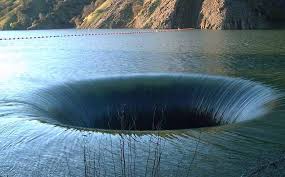 We should not expect much from the European Council next Thursday and Friday. It’s not that good will is lacking, but that the problem of youth unemployment particularly concerns “the south” and those in the “north”, even if things are not too great there, they do not have any desire to spend any money for a young Spaniard or ‘Calabrese’.
We should not expect much from the European Council next Thursday and Friday. It’s not that good will is lacking, but that the problem of youth unemployment particularly concerns “the south” and those in the “north”, even if things are not too great there, they do not have any desire to spend any money for a young Spaniard or ‘Calabrese’.
Perhaps the 6 billion forecast for the next seven years could be spent in two, which on one hand would be a positive boost but risks being a boost toward a void, if within 2 years there is nothing new. A little like the daring races with immortalized machines in many films: the player who goes first wins, and the most desperate is always the one who does not fall, or who gets caught … Let’s not forget that these six billion that the EU has decided to spend to support youth employment in countries where the problem is greater, such as Italy, is money taken from other programs; it’s not unallocated money. It means that other projects, which also created work, but maybe less, maybe not to strengthen youth, maybe to protect the environment or the arts, are lessened.
Then of course there will be many other measures; we ourselves are convinced that the issue is to create conditions for the emergence of new jobs for young people but also for the middle-aged. Therefore it will be decided that the states must modify the tax burdens, that the states must favor the formation, that the states must guarantee a better and more efficient network of employment centers. In short, the EU cannot do much because the money is not there, because the richer countries do not want to contribute, and because also this is true – every country has different reasons and conditions for the employment crisis.
Modernize regulations, take away privileges, invest – these steps are decisive and essential. But one must still work and I have not seen this yet – at the European level for a new economic model and, for new jobs that replace the old ones which are not there. Otherwise the risk is to simplify regulations, to improve employability, to increase training, to invest in job tools to make holes in water. Compared to holes that one must dig and cover up are better than the ones in the water that fill up by themselves, and so you can make so many more…




![Il commissario per l'Economia, Paolo Gentiloni [Bruxelles, 4 novembre 2024. Foto: Emanuele Bonini]](https://www.eunews.it/wp-content/uploads/2024/11/gentiloni-241104-350x250.png)




